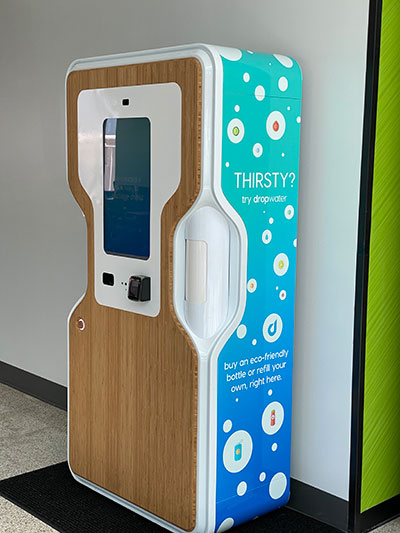
ERLANGER, Ky. — As travelers return to flying at the Cincinnati/Northern Kentucky International Airport (CVG) they will now have two new sustainable water options. The airport installed two DropWater stations, one in Concourse A near Subway/Gate A2 and one in Concourse B near Gate B19, for passengers to either fill their own water bottles or purchase a drink in a 100% compostable container.
The stations offer regular still or flavored water. All flavor options are sugar free and made from natural flavors such as cucumber, guava and lemonade. Customers can also add energy (caffeine) to their water and choose it to be served either room temperature or ice cold.
“CVG is focused on providing healthy and sustainable concession options for travelers,” said Candace McGraw, chief executive officer, CVG. “DropWater is an excellent partner because of its forward thinking and local ties being part of StartupCincy.”
“DropWater’s mission is to shift the consumer beverage industry to a more sustainable future,” said Scott Edwards, founder and CEO of DropWater. “CVG has been fantastic to work with. It is clear they are willing to go out of their way to support sustainable and innovative products.”
“It is great to have DropWater working with CVG as they were a 2018 Pipeline H2O participant and selected as winners of the water-tech focused accelerator program by their peers,” said Antony Sepi, former pipeline director and current business coach at HDC.
Sepi continued: “Co-owners, Scott and Britni Edwards, leveraged the program for maximum benefit, maintaining the valuable connections and resources that they acquired both during and after their stint in the program. The Greater Cincinnati region has shown that it can compete with any region when it comes to developing disruptive, innovative technologies that are solving real challenges in the sustainability space. The Pipeline H2O program was a perfect example of this impact, and the willingness of BigCos, government, and academia to open their arms to innovation.”




















Add Comment